Sudan: El Geneina massacre retold by Arab tribal leaders
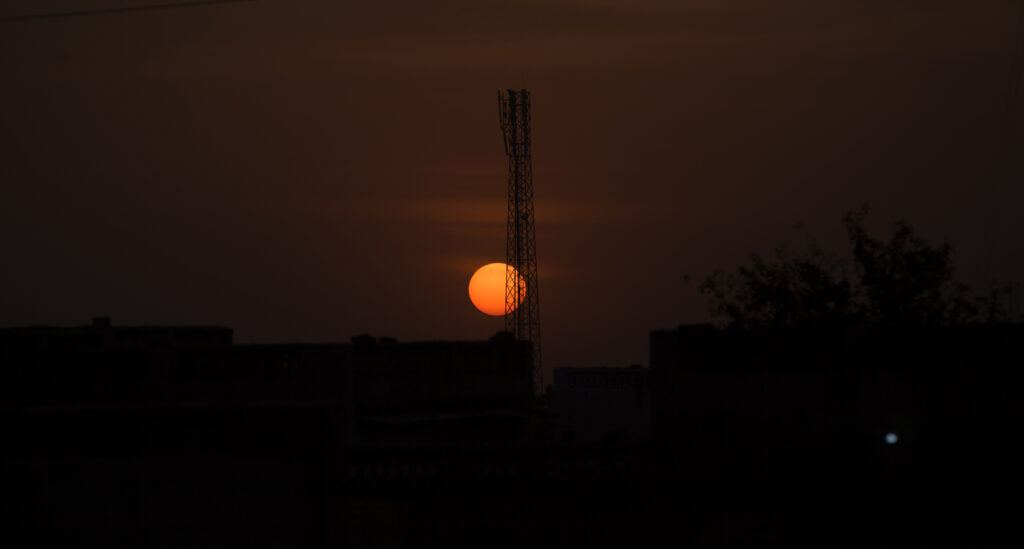
The sun sets on El Geneina, West Darfur (Source: Hamid Abdulsalam / UNAMID)
The office of the Arab Tribes Native Administration has warned of a new outbreak of violence in El Geneina, capital of West Darfur, after thousands of people were killed and injured between April and June in what was described by many commentators as “ethnic cleansing” and “genocide.”
The Arab native administration* leaders accused “certain tribal groups” of “taking refuge with the army” and attacking their fellow tribesmen, which recently led to the death of 16 people.
At a press conference in El Geneina on Monday, attended by Radio Dabanga, the Arab tribal leaders accused Darfuri refugees in eastern Chad of killing five shepherds in September, saying Chadian authorities had arrested the suspects and seized their stolen goods. The road from El Geneina to Ardamata in eastern Chad was closed and the shops were closed because of the attacks by the refugees.
Refugees in eastern Chad described the information circulated at the press conference as misleading and aimed at impunity.
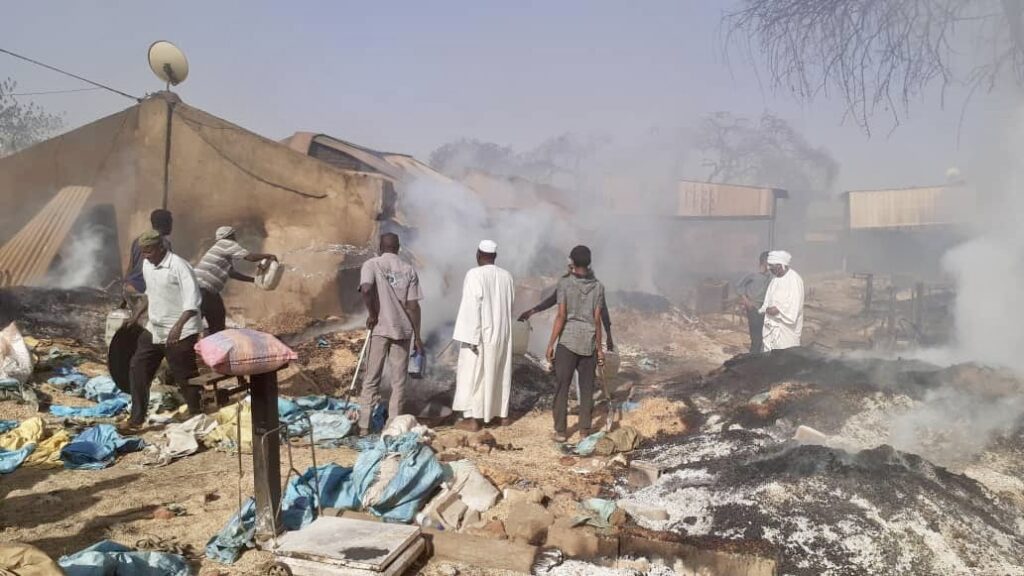
The native administration explained that “the Arab tribes have also been affected by the ongoing war” between the Rapid Support Forces (RSF) and the Sudan Armed Forces (SAF) and the violence in El Geneina in May and June.
This includes 1,200 Arab tribesmen dead, 3,500 others injured, 470 others lost, and the destruction of more than 5,000 homes. They called for the war to stop and for warring parties to return to the Jeddah negotiations.
The press conference echoed the sentiments of comments made by native administration leader Omda Salih Hasan in August. According to him, fighting in El Geneina is not between the Masalit and Arab tribes. “All ethnicities** that did not join the janjaweed are targeted, which forced most of them to seek refuge in Chad, including Arab tribesmen.”
In June, the Sultanate of Dar Masalit reported 5,000 people dead and 8,000 wounded in El Geneina and surrounding as a result of attacks by the Rapid Support Forces and allied militant tribesmen. Radio Dabanga published a longer analysis of the situation in El Geneina based on witness accounts from people who fled to Chad, Radio Dabanga correspondents, and international health workers.
Early September, REDRESS and the SOAS Centre for Human Rights Law reported that “a large body of credible (and evolving) evidence” is emerging implicating both sides of the war in Sudan “in the commission of serious human rights abuses and possible war crimes.”
At the time, the UN Integrated Transition Assistance Mission in Sudan (UNITAMS) reported that the UN Joint Human Rights Office had received “credible” reports of at least 13 mass graves in El Geneina and surrounding areas. It said in a statement that the mass graves were the result of attacks by the RSF and allied Arab militiamen.
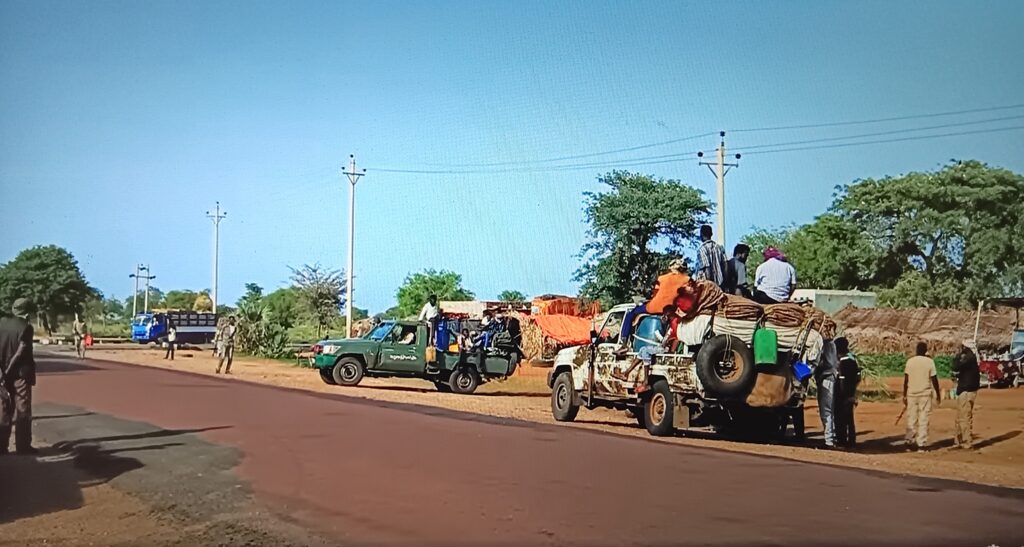
Masar Abdelrahman Eseil, the Amir of the Arab tribes in Darfur and deputy head of the office of the Arab Tribes Native Administration, denied at the press conference on Monday their link to the RSF, and denounced the official complaints filed by the public prosecution in Port Sudan against 45 leaders of Arab tribes.
Eseil called for the formation of investigation committees before issuing arrest warrants against them. He called for “investigation and identification of the criminals” who attacked the West Darfur capital, adding that “El Geneina lives without police, prosecution or legal institutions.”
He accused the Masalit of initiating attacks on Arab tribes in April and the slain West Darfur governor of arming his tribe, the Masalit. West Darfur RSF Commander Abdelrahman Juma is under US sanctions for the killing of West Darfur governor Khamees Abakar and his brother.
Amir Hamid Dewei, head of the office of the Arab Tribes Native Administration, said during the press conference that they stand at the same distance from the army and RSF. He invited El Burhan to visit El Geneina as head of state and said that El Geneina is crowded with members from all tribes at the markets.
Tribes that publicly support the RSF are mainly cattle-herding tribes, predominantly of Arab origin. The RSF mainly recruits from Rizeigat and Misseriya tribes, both Arab tribes. Commander Hemedti hails from Rizeigat, a large tribe of cattle herders dwelling in Darfur, Chad, Niger, and Mali.
Tensions between herders and farmers over pastures and water resources have been present in Darfur for centuries. Violent disputes, mostly occurring in the dry season between January and May, used to be peacefully solved by ajaweed [wise elders], but since Omar Al Bashir came to power and favoured ‘the Arabs’, the delicate balance between the Arab herders’ tribes and the African farmers’ tribes was brutally disrupted.
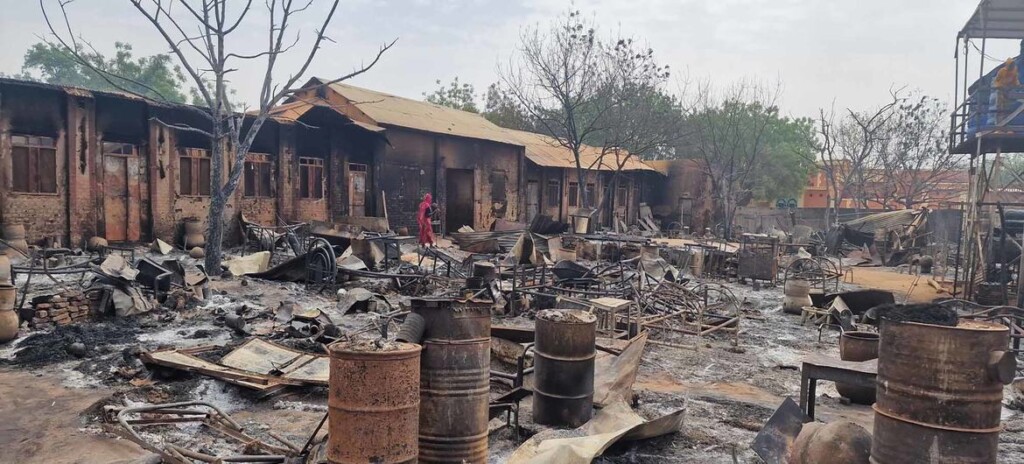
At the press conference, Amir Dewei said that Arab tribes have opened corridors from El Geneina to Chad, for those who safely want to leave El Geneina. Activists reported from the West Darfur capital in early June that people could not flee the city as it was “almost entirely besieged.”
Some 400,000 people fled to Chad after attacks on El Geneina and surrounding areas. Masalit Sultan Saad Abdelrahman earlier said that 70 percent of El Geneina’s residents have sought refuge in eastern Chad.
Regarding conditions in El Geneina, amir Eseil said members of 56 tribes are still living in El Geneina, while most members of the Masalit tribe have fled. He said that the city’s market and El Geneina Teaching Hospital have resumed some of their normal operations after Médecins Sans Frontières (MSF) called El Geneina “the worst place on earth” in June.
Eseil noted that all residents of El Geneina are affected by the war and deserve relief and aid. Several organisations recently distributed food aid in El Geneina.
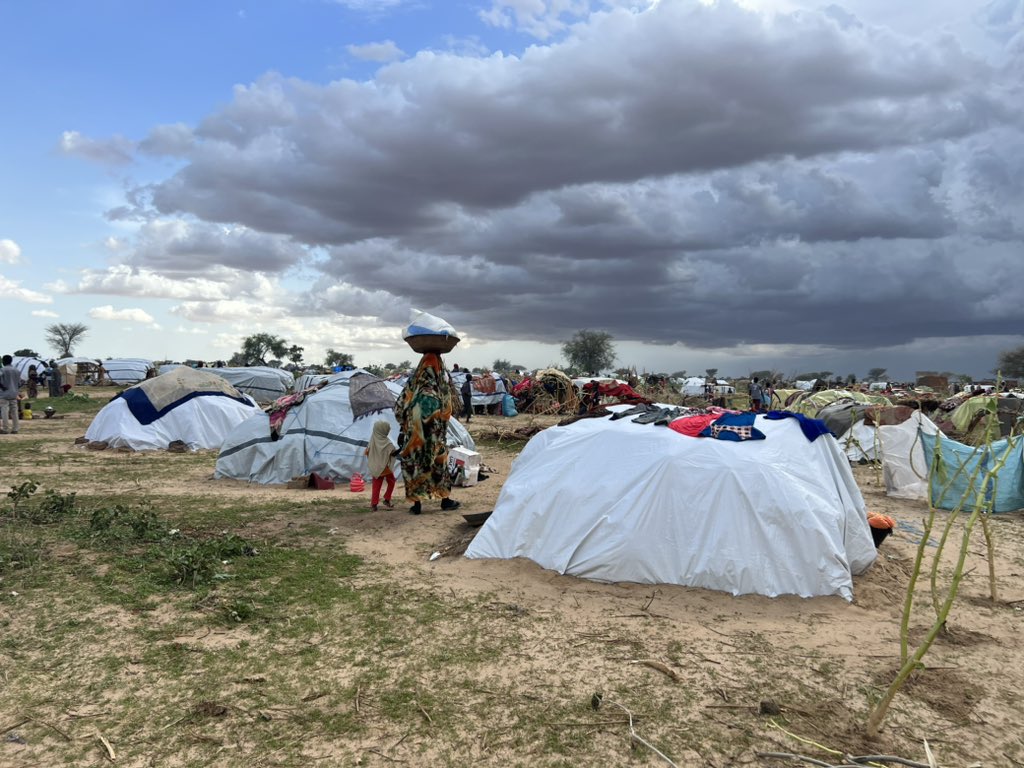
Activist Kamal El Zein, a refugee in eastern Chad, told Radio Dabanga that relief should not be distributed to “the criminals in El Geneina.” He ridiculed the attempt to convince refugees to return to El Geneina, stressing that no dialogue will take place until those complicit have been held accountable.
A recent report by Reuters, published on September 22, evidences “children being shot, women and girls raped, people picked off by snipers in the streets, and others slaughtered inside mosques where they had sought shelter.” Over 120 people were interviewed as part of the investigation, which reportedly reveals a campaign that was systematic and coordinated. “The killings, dozens of witnesses recounted, included executions of El Geneina residents who were identified as Masalit, sometimes after being interrogated by RSF and Arab militia fighters.”
El Zein described Monday’s press conference organised by the Arab tribe’s native administration leaders as “misinformation and an attempt to justify crimes and attribute them to other groups.” He called it “a message to the international community with a view to impunity.”
He told Radio Dabanga that the leaders of the press conference are wanted by local justice for committing crimes in El Geneina. In July, UN High Commissioner for Human Rights Volker Türk called for a swift investigation into the killing of 87 Masalit people following the discovery of a mass grave near El Geneina.
He said that the RSF and allied Arab gunmen still control El Geneina. Regarding calls for peaceful coexistence, El Zein rejected “any coexistence with murderers,” adding that “there are courts between us, not coexistence.”
* The Native Administration was instituted by British colonial authorities seeking a pragmatic system of governance that allowed for effective control with limited investment and oversight by the state. Tribal leaders appointed as native administration leaders were also responsible for executing policies, collecting taxes, and mobilising labour on behalf of the central government. According to the Darfur Bar Association (DBA), the Native Administration during the 30-year rule of dictator Omar Al Bashir did not represent the real community leaders.
** The main tribes of West Darfur are the Masalit, Eringa, the Gimir, the Zaghawa, and the ‘Arab’ Misseriya Jebel. The non-Arab Masalit, constituting the majority, straddle the Sudan-Chad border.








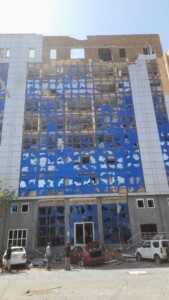


 and then
and then